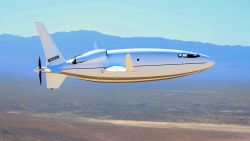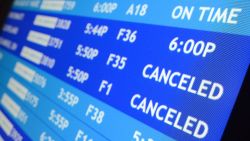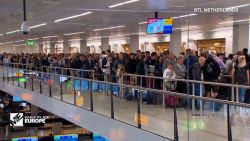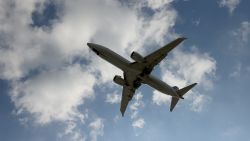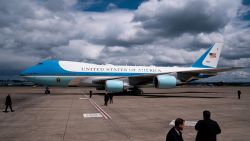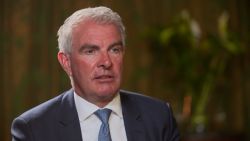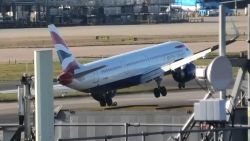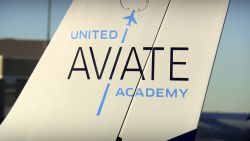Two years ago, Boeing was on top. Its stock was up 40% over the previous year — and it was becoming the best performer in the Dow 30. The outlook for sales and profit was bright. And the company was about to start delivering its new 737 Max jet.
Boeing's 737 MAX problems
CEO Dennis Muilenberg was addressing Wall Street on a conference call on April 26, 2017. He boasted about how quickly the company had brought the 737 Max to market — and praised the Federal Aviation Administration’s “streamlined” certification process. He attributed that to the pro-business philosophy of the new Trump administration.
“That’s helping us more efficiently work through certification on some of our new model aircraft such as the [737] Max as it’s going through flight test and entering into service,” he told analysts. “So we’re already seeing some benefits there of some of the work that’s being done with the FAA.”
Weeks later, Boeing would deliver its first 737 Max. Today, Boeing faces one of the most serious crises in its 103-year history.
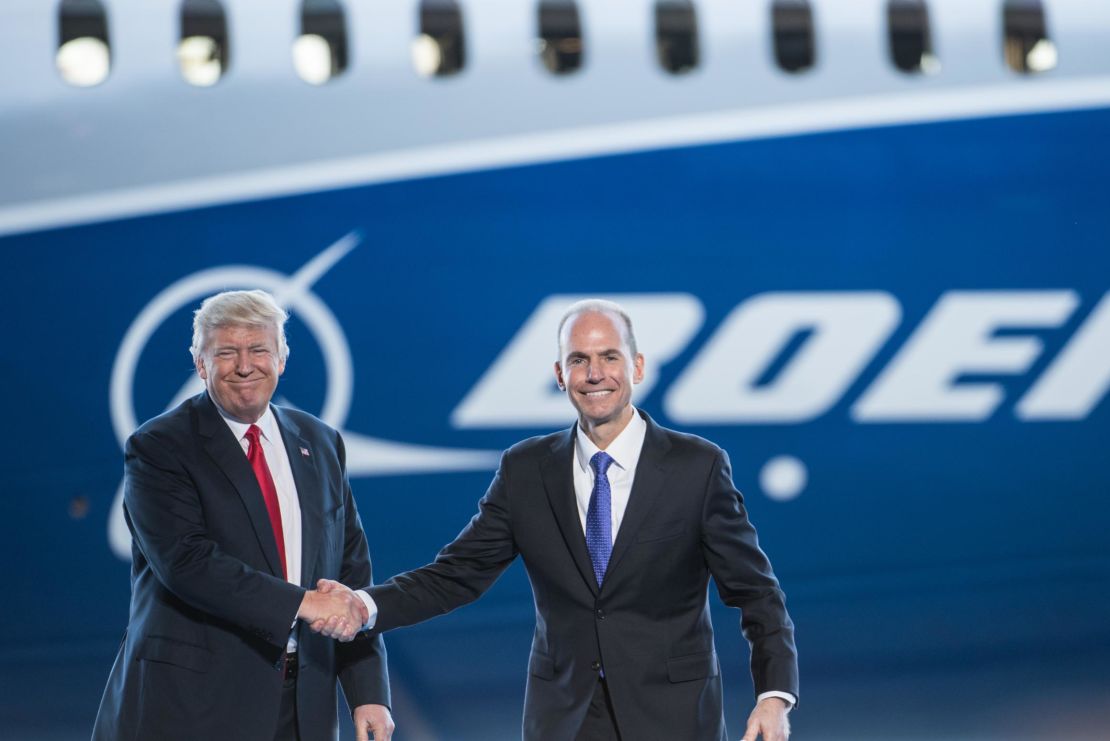
After the March 10 crash of an Ethiopian Airlines 737 Max, coming less than five months after a fatal crash of a 737 Max flown by Lion Air, all of its 737 Max planes were grounded and the plane’s approval process is under scrutiny in Washington. A total of 346 people died in the two accidents.
Ethiopian government officials on Thursday said that the pilots of Ethiopian Airlines Flight 302 performed all of the aircraft manufacturer’s procedures, but were unable to control the jet before it crashed. The findings, part of a preliminary report on the tragedy by the Ethiopian Transport Ministry, are likely to place significant pressure on Boeing.
Boeing says safety is the company’s top priority, and it continues to work with the FAA and investigators as the company develops potential solutions to the problems with the 737 Max.
On Thursday, the company recognized the similarities between the two crashes, and acknowledged the role of its anti-stall system. The Ethiopian report does not specifically name that system, but its findings seem to indicate that the system pushed the plane into a dive fueled by erroneous angle of attack sensor readings.
The preliminary report from Ethiopia contained “flight data recorder information” that indicated the plane had an “erroneous angle of attack sensor input” that activated the anti-stall function, as it had during the Lion Air flight, Boeing said in a statement.
In the coming weeks, Boeing (BA) will make public some of the first pieces of hard information on how the crisis may have affected the company’s financial picture.
“This is a huge … issue, not only for its revenue flow and its earnings flow, but for its reputation,” said Jim Corridore, director of industrial equity research for CFRA Research. “It needs to be rectified sooner rather than later.”
How well, and how quickly, Boeing finds a fix to this problem will be crucial for the company. The 737 Max is Boeing’s biggest and most important product by a wide margin.
The company should be able to resolve the problem within three months, said Richard Aboulafia, vice president of analysis at the Teal Group.
“If they can’t, it’s a real drag on engineering resources, management resources, and investor confidence, to say nothing about becoming the mother of all production traffic jams,” Aboulafia said.
Boeing faces a public reckoning
Boeing is working to develop a software fix that will get the 371 grounded 737 Max jets back in the air. Boeing had signaled soon after the Ethiopian Airlines crash that the fix would be available in a matter of weeks, but it has yet to be finalized.
In a statement Thursday afternoon, Muilenburg reiterated that the “full details” of what happened in both crashes will be issued at a later date. But he added that the company is close to releasing the software update that, along with training, will ensure that incidents similar to the two crashes “never happen again.”
“It’s our responsibility to eliminate this risk,” Muilenburg added. “We own it and we know how to do it.”
US Justice Department prosecutors have issued multiple subpoenas as part of an investigation into the FAA’s certification and Boeing’s marketing of that plane model, CNN has learned. Transportation Secretary Elaine Chao also asked the agency’s inspector general to investigate the Max certification process.
Congress already had the first of what could be multiple hearings into the process. It announced an investigation into potential connections between inadequate training and certification of aviation safety inspectors who may have participated in the evaluation of the Boeing 737 Max.
How will the 737 Max hurt Boeing’s business?
Boeing will report first quarter deliveries and orders on April 9. Analysts expect that the numbers will be hurt by the halt of deliveries of the 737 Max, even as Boeing continues to build the plane in Renton, Washington.
On April 24, the company will report financial results for the first three months of the year. Boeing will probably include an estimate for how much the grounding will cost for compensation to its airline customers. Boeing’s executives will then face shareholders on April 29 at its annual meeting in Chicago.
So far only one airline — Indonesia’s Garuda — has publicly canceled an order for the 737 Max, a $4.9 billion order for 50 planes. Most analysts don’t believe many airlines will cancel orders. Boeing rival Airbus has an even longer waiting list for its Airbus A320.
But Boeing is already trailing Airbus by some measures in the competition for single-aisle jet sales. And if airline passengers aren’t comfortable flying the 737 Max when it returns to the air, it will hurt the airlines that have already committed to the planes. Boeing is counting on those airlines for future orders.
Boeing faces a huge bill to reimburse airlines for the grounded planes. Cowen aerospace analyst Cai von Rumohr estimates that cost is already $2 billion, and the price goes up every day the planes aren’t flying.
It’s a negative turn for a company that had been performing incredibly well for most of the last two years. By the end of 2018, Boeing had orders for 5,000 of the 737 Max.
Boeing is an extremely profitable company. It 2018, it topped $100 billion in annual sales for the first time, and profit grew 24% to $10.5 billion. It has a backlog of orders worth nearly $500 billion that includes 5,900 commercial jets. At the start of the year it expected revenue and profit to grow and cash flow to hit $17 billion during the year, so Boeing should have the resources to cover the cost of the crisis, no matter how expensive it becomes.
“Boeing has significant financial resources to weather the effects of the groundings,” said Moody’s when it confirmed its A2 long-term credit rating.
The company’s shares, which ballooned 140% from Muilenberg’s April 2017 call with Wall Street through the beginning of this March, are down 9% since the Ethiopia crash. That shaved $20 billion off of its market cap.
But what probably helps Boeing as much as anything else is it has an effective duopoly — along with rival Airbus — when it comes to passenger aircraft.
“Certainly we don’t discount the human tragedy of these two crashes,” said Corridore of CFRA Research. “But Boeing has an excellent track record. It is in a business where it is one of two manufacturers, with a strong demand, huge demand from China.
“We think 2019 is not going to be a great year financially for this company,” he said. “But we think longer term, they’re going to be OK.”


